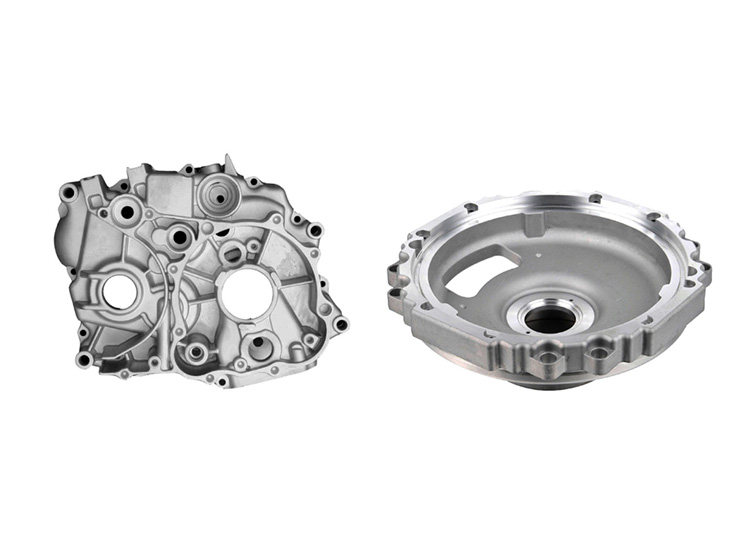An Unbiased View of Stahl Specialty Company
Wiki Article
An Unbiased View of Stahl Specialty Company
Table of ContentsSee This Report on Stahl Specialty CompanyThe smart Trick of Stahl Specialty Company That Nobody is Talking AboutThe Of Stahl Specialty CompanyThe Greatest Guide To Stahl Specialty CompanyStahl Specialty Company for Dummies
The subtle difference hinges on the chemical web content. Chemical Comparison of Cast Light weight aluminum Alloys Silicon advertises castability by lowering the alloy's melting temperature level and improving fluidity during casting. It plays a crucial role in allowing intricate mold and mildews to be loaded precisely. Furthermore, silicon adds to the alloy's strength and put on resistance, making it valuable in applications where sturdiness is important, such as automobile parts and engine components.It likewise improves the machinability of the alloy, making it easier to refine into ended up items. In this means, iron adds to the total workability of light weight aluminum alloys. Copper boosts electrical conductivity, making it helpful in electrical applications. It also enhances rust resistance and adds to the alloy's total toughness.
Manganese adds to the strength of aluminum alloys and boosts workability. It is typically utilized in functioned light weight aluminum items like sheets, extrusions, and accounts. The existence of manganese aids in the alloy's formability and resistance to splitting during manufacture processes. Magnesium is a light-weight component that offers strength and impact resistance to aluminum alloys.
It enables the manufacturing of light-weight elements with superb mechanical properties. Zinc enhances the castability of aluminum alloys and aids control the solidification process during spreading. It boosts the alloy's stamina and solidity. It is usually located in applications where complex forms and great details are necessary, such as decorative spreadings and specific auto components.
Stahl Specialty Company - The Facts
Since aluminum-silicon alloys have great casting buildings, high gas residential or commercial properties, easy procedures, and superb rust resistance, aluminum-silicon alloys are most generally utilized in the die-casting market at home and abroad. At the exact same time, aluminum-silicon alloys are also fairly early and extensively recognized alloys established and made use of in die-casting. After continual study and renovation, a lot of the current global mainstream aluminum-silicon alloys have actually been completed and are nothing greater than A356, A360, A380, ADC12, B390, and A413.
The main thermal conductivity, tensile stamina, yield stamina, and prolongation vary. Amongst the above alloys, A356 has the highest thermal conductivity, and A380 and ADC12 have the least expensive.

Stahl Specialty Company - The Facts
In accuracy casting, 6063 is appropriate for applications where complex geometries and top quality surface finishes are vital. Instances consist of telecommunication enclosures, where the alloy's remarkable formability permits sleek and visually pleasing layouts while maintaining structural stability. In the Lights Solutions sector, check this precision-cast 6063 parts produce sophisticated and effective illumination components that need detailed forms and excellent thermal efficiency.
(https://www.anobii.com/en/018095c6db0f515107/profile/activity)
The A360 exhibits remarkable elongation, making it optimal for complex and thin-walled elements. In accuracy spreading applications, A360 is well-suited for markets such as Consumer Electronic Devices, Telecommunication, and Power Tools.

In accuracy casting, aluminum 413 radiates in the Consumer Electronics and Power Equipment industries. This alloy's remarkable deterioration resistance makes it an outstanding selection for outdoor applications, making certain lasting, long lasting products in the discussed markets.
The Of Stahl Specialty Company
When you have determined that the light weight aluminum pass away casting procedure is suitable for your job, a crucial next step is choosing the most proper alloy. The light weight aluminum alloy you select will significantly affect both the spreading procedure and the buildings of the last product. Due to the fact that of this, you must make your choice thoroughly and take an enlightened technique.Establishing the most appropriate light weight aluminum alloy for your application will mean evaluating a wide variety of qualities. The initial classification addresses alloy qualities that impact the manufacturing procedure.
The alloy you pick for die casting straight affects a number of aspects of the spreading procedure, like just how very easy the alloy is to collaborate with and if it is prone to casting flaws. Warm breaking, additionally referred to as solidification splitting, is a normal die casting flaw for light weight aluminum alloys that can lead to interior or surface-level rips or fractures.
The 20-Second Trick For Stahl Specialty Company
Specific light weight aluminum alloys are more prone to warm fracturing than others, and your option needs to consider this. One more typical flaw discovered in the die spreading of aluminum is pass away soldering, which is when the actors adheres to the die walls and makes ejection tough. It can harm both the cast and the die, so you must look for alloys with high anti-soldering buildings.Deterioration resistance, which is currently a remarkable feature of aluminum, can differ significantly from alloy to alloy and is a necessary characteristic to consider depending on the environmental problems your product will certainly be subjected to. Put on resistance is an additional building frequently sought in aluminum items and can separate some alloys.
Report this wiki page